Tuesday, December 6, 2011
By John Metzer
The Livestock Conservancy is a nonprofit membership organization working to protect over 180 breeds of livestock and poultry from extinction. Its mission is to protect the genetic diversity in livestock and poultry species through the conservation and promotion of endangered breeds. These rare breeds are part of our national heritage and represent a unique piece of the earth's bio-diversity.
The Livestock Conservancy is a nonprofit membership organization working to protect over 180 breeds of livestock and poultry from extinction. Its mission is to protect the genetic diversity in livestock and poultry species through the conservation and promotion of endangered breeds. These rare breeds are part of our national heritage and represent a unique piece of the earth's bio-diversity.
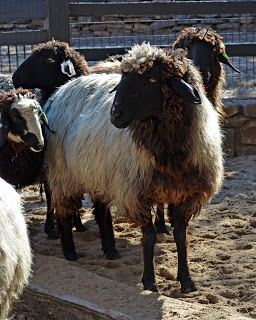
I have been a member of the Livestock Conservancy (formerly the American Livestock Breed Conservancy or ALBC) for many years and I became a board member in 2012. I would encourage everyone to become a member. Annual dues are minimal, and there are four main benefits to becoming a member:
1) You are supporting an organization with a vital mission of saving rare breeds of livestock and poultry
2) Quarterly newsletter/magazine with excellent articles on how people are saving and using rare breeds throughout the USA
3) Rare Breeds, Breeders and Products Directory
4) Access to the technical and research staff of the Livestock Conservancy. I have used them myself!
1) You are supporting an organization with a vital mission of saving rare breeds of livestock and poultry
2) Quarterly newsletter/magazine with excellent articles on how people are saving and using rare breeds throughout the USA
3) Rare Breeds, Breeders and Products Directory
4) Access to the technical and research staff of the Livestock Conservancy. I have used them myself!
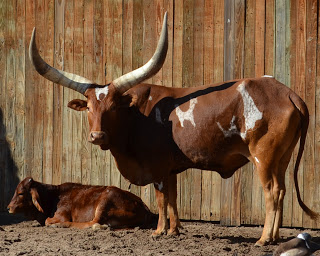
You may own some rare breeds of poultry now! The following is how The Livestock Conservancy (TLC) ranks different breeds of livestock and poultry. For each category, I have listed the breeds we offer.
Critical: Fewer than 500 breeding birds in the US and five or fewer primary breeders
* Geese - Roman
Threatened: Fewer than 1000 breeding birds in the US and seven or fewer primary breeders
* Ducks - Magpie, Saxony
* Geese - Sebastopol, Pilgrim
Watch: Fewer than 5000 breeding birds in the US and ten or fewer primary breeders
* Ducks - Cayuga, Buff, Silver Appleyard, Welsh Harlequin, Swedish, non-industrial Rouen
* Geese - Buff, Chinese, African, Dewlap Toulouse
Recovering: Breeds that were in another category but have now exceeded Watch numbers
* Ducks - Runners
Study: Breeds that are of genetic interest but do not qualify otherwise
Critical: Fewer than 500 breeding birds in the US and five or fewer primary breeders
* Geese - Roman
Threatened: Fewer than 1000 breeding birds in the US and seven or fewer primary breeders
* Ducks - Magpie, Saxony
* Geese - Sebastopol, Pilgrim
Watch: Fewer than 5000 breeding birds in the US and ten or fewer primary breeders
* Ducks - Cayuga, Buff, Silver Appleyard, Welsh Harlequin, Swedish, non-industrial Rouen
* Geese - Buff, Chinese, African, Dewlap Toulouse
Recovering: Breeds that were in another category but have now exceeded Watch numbers
* Ducks - Runners
Study: Breeds that are of genetic interest but do not qualify otherwise
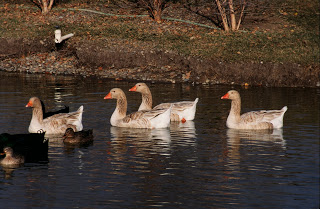
I was very impressed with the professionalism and passion the staff has with their mission. It is not a large staff but it is a very dedicated group of believers.
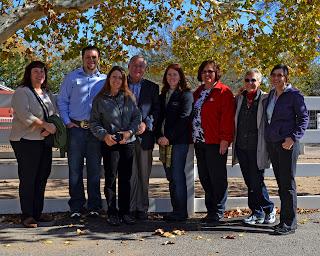
The Livestock Conservancy realizes one of the the best ways to preserve a breed is to make it a profitable animal to raise and sell. Only then will there be more demand for that breed and more breeders. Hence the emphasis is on the unique attributes some breeds have in terms of meat taste and texture, capacity to handle challenging environments, ability to reproduce and care for their young, wool quality, etc. Consumers want a choice in what they purchase. Heritage breeds of livestock and poultry provide that alternative.
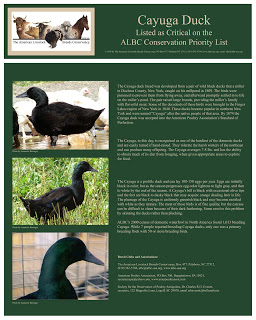
The main activities of The Livestock Conservancy are:
- Research on breed characteristics and populations, and publish an annual Conservation Priority List
- Education about genetic diversity, breed attributes, and the role of livestock in a more sustainable agriculture.
- Technical, marketing, and promotional support to a network of breeders, breed associations, and farmers.
- Assistance to gene banks to identify important genetic materials that should be collected from endangered breeds.
- Genetic rescues of threatened populations.
The Livestock Conservancy is a valuable organization to farmers and consumers - now and in the future. Please consider joining this vital effort to preserve rare livestock and poultry breeds. I am a member and director and wholly support the mission of The Livestock Conservancy.
- Research on breed characteristics and populations, and publish an annual Conservation Priority List
- Education about genetic diversity, breed attributes, and the role of livestock in a more sustainable agriculture.
- Technical, marketing, and promotional support to a network of breeders, breed associations, and farmers.
- Assistance to gene banks to identify important genetic materials that should be collected from endangered breeds.
- Genetic rescues of threatened populations.
The Livestock Conservancy is a valuable organization to farmers and consumers - now and in the future. Please consider joining this vital effort to preserve rare livestock and poultry breeds. I am a member and director and wholly support the mission of The Livestock Conservancy.